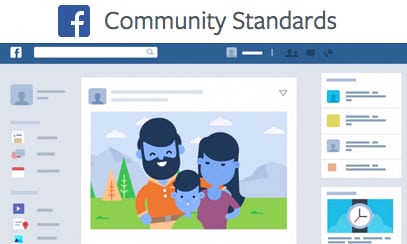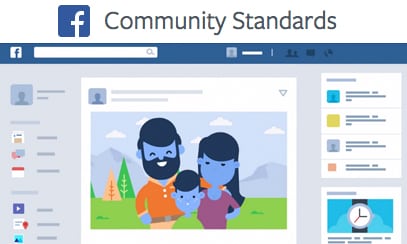
 With Facebook's growing influence as one of the world's most important news and information sources, the network has been forced to deal with the difficult problems of encouraging respectful behavior and keeping its users safe while maintaining free speech and following international laws. On March 15, in an attempt to clarify where the network stands on touchy issues such as nudity, hate speech, dangerous organizations and graphic content, Facebook posted its most thorough community standards to date.
With Facebook's growing influence as one of the world's most important news and information sources, the network has been forced to deal with the difficult problems of encouraging respectful behavior and keeping its users safe while maintaining free speech and following international laws. On March 15, in an attempt to clarify where the network stands on touchy issues such as nudity, hate speech, dangerous organizations and graphic content, Facebook posted its most thorough community standards to date.
Facebook's updated community standards reach a new level of transparency, making good on demands for clarification of its policies. While the network says its policies haven't changed, the new community standards do provide clarity on some difficult topics. Let's take a look at two in particular that have an impact on communications professionals:
Fraud and spam: Of course, you aren't spammer. You have legitimate information to share with people who need to know about it, and you use Facebook to get that information out.
Not everyone may see it that way. Back in January, Facebook announced new ways for users to report when they felt they were being purposely misled on the network. The new community standards regarding spam leave little to the imagination: "Using misleading or inaccurate information to artificially collect likes, followers or shares is not allowed. We also ask that you respect people by not contacting them for commercial purposes without their consent." Brands, take notice.
Hate speech: If your brand or organization plans to use Facebook to tackle a contentious topic, the new standards provide a bit more clarity about what is and isn't acceptable.
Facebook says that race, gender and religion-based attacks won't be tolerated. Still, Facebook expects people to use the network to challenge ideas, institutions and practices. "Such discussion can promote debate and greater understanding," the network says. In cases where brands or organizations know that the content they wish to share could be viewed by others as borderline intensive, the new standards ask that Page owners to essentially own up to it and directly associate their name and Facebook Profile with that content.
Follow Brian Greene on Twitter: @bw_greene
